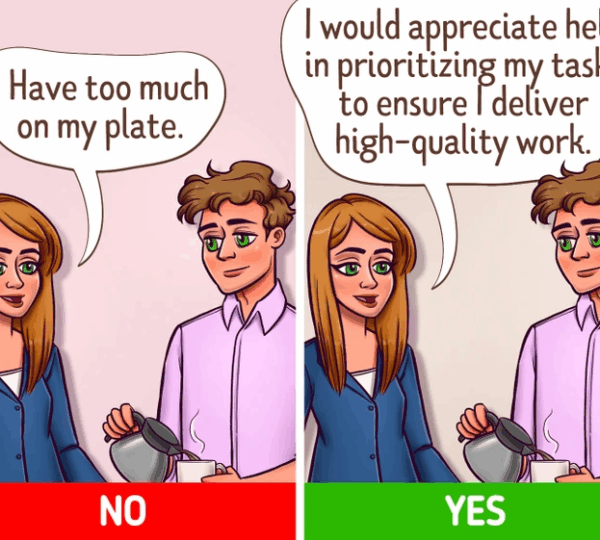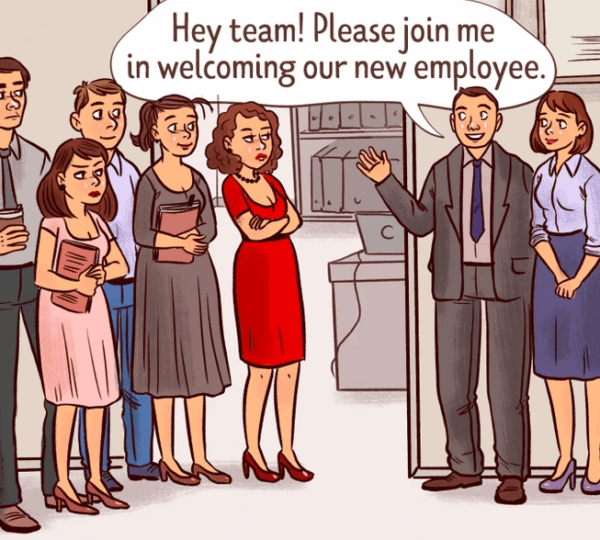In today’s fast-paced professional world, strong communication is no longer just a “nice to have”—it’s a core skill that directly affects your success.
The way you speak, listen, and interact with others at work shapes how people perceive you, how much they trust you, and ultimately, how well you perform.
Every conversation, meeting, and email contributes to your personal brand and influences the overall culture of your workplace.
Clear, respectful communication helps build trust, foster collaboration, and strengthen your credibility.
But effective communication isn’t just about talking well—it’s about creating connection, showing empathy, and contributing to a team environment where everyone can succeed.
Here are seven proven strategies to help you communicate with confidence and leave a lasting impression—no matter your role or industry. 1. Be a Truly Active Listener Listening is one of the most underrated, yet powerful skills in the workplace. While many professionals focus on speaking well, those who truly listen—without interrupting or thinking about what they’ll say next—tend to build stronger relationships and earn more respect.
Active listening means being fully present: making eye contact, nodding to show understanding, avoiding distractions (like checking your phone), and responding thoughtfully. When people feel heard, they feel valued. This simple act can transform conversations, build trust, and make team members more willing to collaborate and contribute. In meetings, make it a point to pause, let others speak, and avoid jumping in too quickly. Listening isn’t passive—it’s one of the most impactful ways to lead.

2. Use Positive, Collaborative Language
How you phrase something can completely change the way your message is received. Even when delivering difficult news or giving feedback, your tone and word choice matter.
Avoid phrases that shut down ideas like, “That won’t work,” or, “We can’t do that.” These create resistance and negativity. Instead, reframe challenges in a solution-oriented way:
-
❌ “We’re behind schedule.”
-
✅ “To stay on track, we’ll need to adjust our approach.”
Also, steer clear of language that sounds patronizing, like, “That’s actually a good idea.” A better version? “That’s a great point—thanks for bringing it up.” Simple language tweaks like these create a more encouraging environment and help keep conversations productive.
3. Come With Solutions, Not Just Problems
Every job comes with its fair share of challenges—but the way you respond to problems sets you apart. Instead of simply pointing out what’s wrong, take initiative by offering potential solutions or next steps.
For example, rather than saying, “We have a problem with this project,” try, “We’ve run into a challenge—but here are a couple of ideas to get things back on track.”
This approach shows that you’re proactive, thoughtful, and committed to finding a way forward—not just passing problems up the chain.

Even if your solution isn’t perfect, your willingness to brainstorm and problem-solve builds credibility and positions you as a reliable teammate.
4. Set Boundaries Professionally and Respectfully
Setting boundaries at work isn’t a sign of weakness—it’s a sign of self-awareness and professionalism. If your workload becomes unmanageable, it’s okay to speak up—but how you do it makes all the difference.
Rather than saying, “I’m too busy for this,” try,
“To ensure quality on my current projects, I’d appreciate help prioritizing new tasks.”
This communicates that you’re committed to doing excellent work and willing to collaborate. Healthy boundaries protect your energy, prevent burnout, and help you stay focused on what matters most.

5. Choose Inclusive Language
The language we use shapes how others feel. Inclusive language makes the workplace more welcoming and respectful for everyone, regardless of gender, identity, or background.
Seemingly casual phrases like “Hey guys” may unintentionally exclude others. Instead, opt for neutral terms like “everyone,” “team,” “folks,” or even just use people’s names directly. It’s a small habit that sends a powerful message: You belong here.
When people feel included, they’re more likely to participate, contribute ideas, and engage with the team. Inclusivity isn’t just polite—it’s smart communication.
6. Stop Undermining Yourself
Many professionals—especially those newer to a role—tend to soften their ideas with self-doubt. Phrases like:
-
“This might be a dumb question, but…”
-
“I’m not sure if this makes sense…”
-
“Sorry if this is off-topic…”
These disclaimers weaken your voice and reduce your impact, even if your ideas are strong. Speak with confidence, and trust that your input is valuable. If you’re unsure, it’s okay to ask questions—but avoid apologizing for speaking up.
Your ideas matter. If you’ve done the work and you’re thinking critically, you have every right to share your perspective with clarity and confidence.
7. Respond Professionally to Requests Outside Your Role
Sometimes, you may be asked to take on tasks that aren’t technically part of your job. While it’s important to protect your time, dismissive phrases like, “That’s not my job,” can come across as unhelpful or resistant.
Instead, try a collaborative response like:
“I’m happy to help if I can—can we look at it together and see how to approach it?”
This shows you’re a team player while still setting boundaries in a respectful way. It’s about striking the balance between being supportive and staying focused on your main responsibilities.
Final Thoughts: Communication is Connection
Communication in the workplace is more than just exchanging information—it’s about how you make others feel, how clearly you express your ideas, and how well you build trust and understanding.
By practicing active listening, using inclusive and empowering language, offering solutions, setting boundaries respectfully, and speaking with confidence, you’ll leave a lasting impression on your colleagues—and grow your influence as a professional.
Strong communication isn’t just a soft skill—it’s a leadership skill. And investing in it will not only benefit your career but also help create a healthier, more collaborative, and more human workplace.





